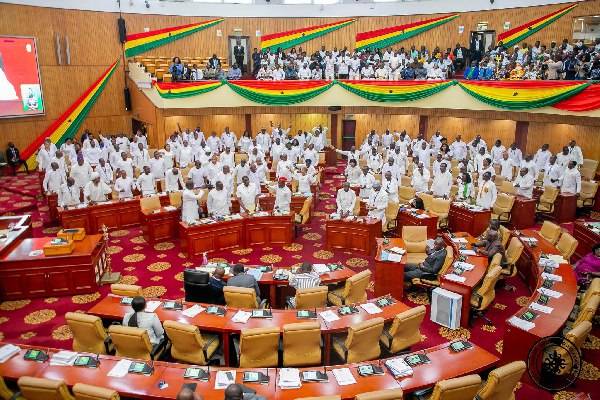Former Director General and Rector of the Ghana Institute of Management and Public Administration (GIMPA), Professor Stephen Adei, recently weighed in on the passage of the Anti-Gay Bill in Ghanaian Parliament, suggesting that Members of Parliament (MPs) may have felt pressured to support the legislation in order to bolster their chances of re-election. In an interview with JoyNews, Professor Adei articulated that the MPs may have harbored concerns about losing their seats if they did not align with the sentiments surrounding the Anti-Gay Bill. He emphasized that the issue had evolved into a politically charged one, with constituents expecting their elected representatives to take a resolute stance against what they perceive as moral and cultural encroachments.
According to Professor Adei, the prevailing sentiments within Ghanaian society regarding the Anti-Gay Bill likely influenced the MPs' decision-making process. He asserted, "I expected it to be passed because the MPs knew that if they don’t pass this Bill, they will all lose their seats because of the Ghanaian sentiments of the bill." This sentiment underscores the weight of public opinion and societal expectations on Ghanaian legislators, suggesting that failure to support the bill could have carried significant electoral ramifications for them.
The Anti-Gay Bill, which received parliamentary approval on February 28, 2024, aims to criminalize and prohibit activities related to lesbian, gay, bisexual, and transgender (LGBT) individuals in Ghana. If enacted, the legislation would impose a three-year prison sentence on individuals engaged in same-sex relations, while those promoting or sponsoring such activities could face even harsher penalties. However, the bill's passage has triggered both domestic and international controversy, with critics condemning it as discriminatory and a violation of fundamental human rights.
Despite the backlash, Professor Adei indicated that Ghanaian MPs may have perceived limited options and felt compelled to support the bill due to political considerations. He expressed confidence that President Akufo-Addo would sign the bill into law, citing the potential political repercussions of not doing so. "I think he would sign it because the consequences of his not signing it for himself and his party would be incalculable," Professor Adei remarked. This observation underscores the intricate interplay between political calculations and policy decisions within the Ghanaian context.
In essence, Professor Adei's insights shed light on the complex dynamics surrounding the passage of the Anti-Gay Bill in Ghana. The convergence of societal expectations, political imperatives, and electoral considerations has likely influenced the decision-making process of Ghanaian MPs. Moreover, the contentious nature of the bill underscores the ongoing debate over LGBT rights and the balance between cultural norms, human rights, and democratic principles in the Ghanaian context. As the nation grapples with these issues, the ramifications of the Anti-Gay Bill's passage will continue to reverberate both domestically and internationally, shaping the discourse on human rights and governance in Ghana for the foreseeable future.




No comments yet
Be the first to share your thoughts!